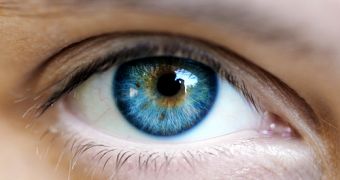Given the fact that people “see” with their brain, and not with their visual system (the latter is merely a “tool” for the brain), a team of researchers believe that they can work towards restoring the vision of blind patients by electrically stimulating the visual cortex.
In other words, rather than try and patch up a visual system which no longer serves its purpose, these scientists wish to let go of it entirely and focus solely on the patient's brain.
The progress this team of specialists from the Baylor College of Medicine and the University of Texas Health has made thus far was presented during a meeting of the Society for Neuroscience, which took place in New Orleans only yesterday.
Technology Review informs us that these scientists have managed to prove that an electrical stimulation of the visual cortex can lead to the patient's experiencing the sensation of flashes of light.
Interestingly enough, it seems that the patient could also link these flashes to spatial information.
According to the same source, all of the three individuals who agreed to take part in these experiments ended up detecting phosphenes (i.e. bright spots of light).
Although being able to see these phosphenes might not seem all that impressive, the researchers believe that, once put together, several such flashes could yield significant results.
“Twenty-seven or so simultaneous flashes might allow participants to see the outline of a letter,” reads a press release commenting on this project.
Furthermore, “While much work remains to be done, the possibilities are exciting. If successful, we would in essence bypass eyes that no longer work and stimulate the brain to generate mental images. This type of device is known as a visual prosthetic.”
Should these scientists succeed in their work, significant progress could be made in terms of treating people whose retinas are unable to receive stimulation.

 14 DAY TRIAL //
14 DAY TRIAL //